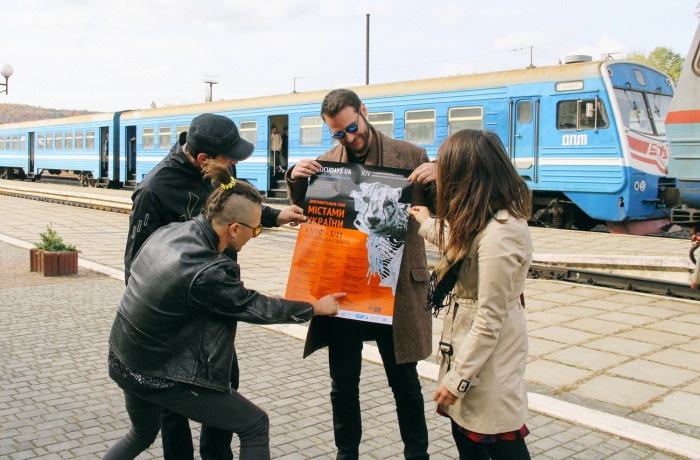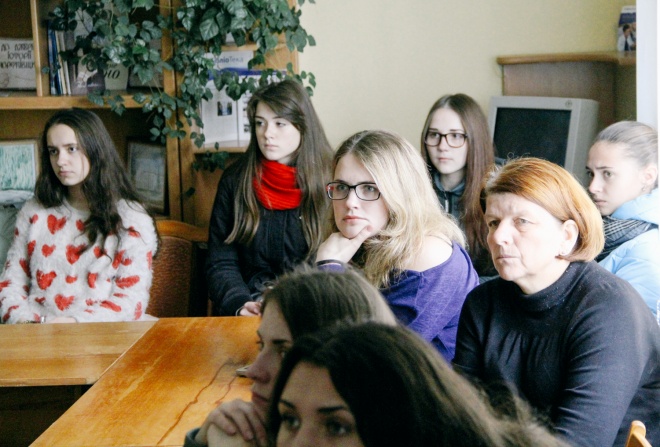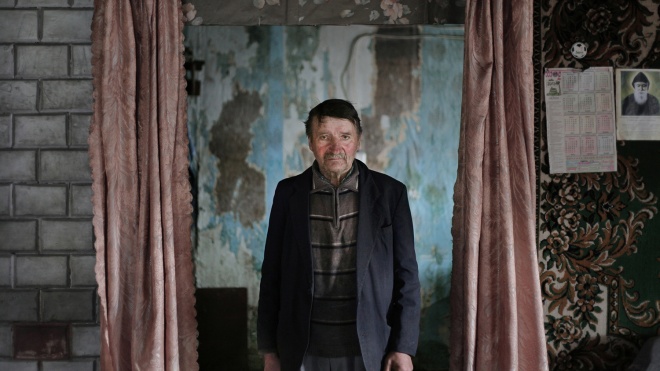Festival Equator: Ternopil Region
Festival Equator: Ternopil Region

Docudays UA’s travels in Ternopil region have crossed their equator. Here, we meet new people thanks to our shared interest in documentary films — in Buchach, Zbarazh, Zvyniach, Husiatyn and other towns. Oleksandr Stepanenko, the festival’s regional coordinator, shares his impressions.
On October 30, Docudays UA was welcomed in Chortkiv, in the beloved Library on Green Street. It was a special meeting, because of the visit of Traveling Festival’s friends from the nearby Zalishchyky.
The first film screened was Refuge by Anastasia Maksymchuk. It is a story of the confrontation between two groups of people who don’t want our towns and cities to have stray animals. One group implements this desire by creating shelters and looking for “good hands” that could adopt them. Others see a way out in physically exterminating the animals. The discussion around the question “The problem of stray animals or the problem of irresponsible people?” was moderated by our colleague Zoriana Leseiko, who has worked in protecting and caring for homeless animals for many years now.

Focused silence filled the room during the screening of the film Dead Ears by the young Lithuanian director Linas Mikuta. The film is about two lonely men, a father and his mute son, who live alone in the woods somewhere on the Lithuanian-Belarusian border, like biblical shepherds. The film is about the invisible walls that sometimes arise even between close family. It is about the acute perception of the world around him by a man who has been deprived of the gift of hearing since he was born, and about the spiritual deafness of the other man. The film is full of incredible beauty of shots; it is no accident that the camerawoman Kristina Sereikaite received several international awards for it.
In one of his interviews, Linas Mikuta says that at the beginning, the two forest hermits did not want their life to be filmed. They said, “We are not actors, we can’t look good.” The director explained to them that he was interested in what they were really like, interested in the truth of their life. At first, they were confused. “So you want the WHOLE TRUTH?” But finally, the ice of distrust melted. Once, the deaf son even wrote a message, “Come to us in the early morning, sometimes we get mirages here.” Is the opportunity to live alone with the nature disappearing from the life of contemporary human being like an elusive mirage?

Still from Dead Ears film by Linas Mikuta
All the photos: Lilia Burdeina-Domarad and Andriy Stepanenko












